Ford Puma vs Skoda Octavia Combi - Differences and prices compared
Compare performance (168 HP vs 265 HP), boot space and price (24800 £ vs 24400 £) at a glance. Find out which car is the better choice for you – Ford Puma or Skoda Octavia Combi?
Costs and Efficiency:
Price and efficiency are key factors when choosing a car – and this is often where the real differences emerge.
Skoda Octavia Combi has a minimal advantage in terms of price – it starts at 24400 £, while the Ford Puma costs 24800 £. That’s a price difference of around 351 £.
Fuel consumption also shows a difference: Skoda Octavia Combi manages with 4.40 L and is therefore distinct more efficient than the Ford Puma with 5.40 L. The difference is about 1 L per 100 km.
Engine and Performance:
Under the bonnet, it becomes clear which model is tuned for sportiness and which one takes the lead when you hit the accelerator.
When it comes to engine power, the Skoda Octavia Combi has a evident edge – offering 265 HP compared to 168 HP. That’s roughly 97 HP more horsepower.
In acceleration from 0 to 100 km/h, the Skoda Octavia Combi is a bit quicker – completing the sprint in 6.50 s, while the Ford Puma takes 7.40 s. That’s about 0.90 s faster.
In terms of top speed, the Skoda Octavia Combi performs a bit better – reaching 250 km/h, while the Ford Puma tops out at 210 km/h. The difference is around 40 km/h.
There’s also a difference in torque: Skoda Octavia Combi pulls distinct stronger with 370 Nm compared to 290 Nm. That’s about 80 Nm difference.
Space and Everyday Use:
Cabin size, boot volume and payload all play a role in everyday practicality. Here, comfort and flexibility make the difference.
Both vehicles offer seating for 5 people.
In curb weight, Ford Puma is hardly perceptible lighter – 1316 kg compared to 1366 kg. The difference is around 50 kg.
In terms of boot space, the Skoda Octavia Combi offers somewhat more room – 640 L compared to 523 L. That’s a difference of about 117 L.
In maximum load capacity, the Skoda Octavia Combi performs clearly perceptible better – up to 1700 L, which is about 417 L more than the Ford Puma.
When it comes to payload, Skoda Octavia Combi to a small extent takes the win – 534 kg compared to 469 kg. That’s a difference of about 65 kg.
Who comes out on top?
Overall, the Skoda Octavia Combi shows itself to be leaves the rival little chance and secures the title of DriveDuel Champion.
It convinces with the more balanced overall package and proves to be the more versatile choice for everyday use.
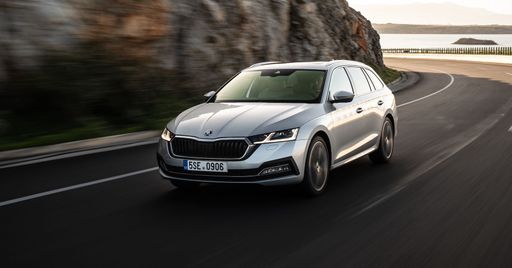
Skoda Octavia Combi
Costs and Consumption
View detailed analysis
Engine and Performance
View detailed analysis
Dimensions and Body
View detailed analysis
Ford Puma
The Ford Puma is a cheeky compact crossover that blends sporty styling with city-friendly practicality, giving drivers a surprisingly fun and composed ride. With clever storage tricks and a lively personality, it’s a smart pick for buyers who want enjoyment without fuss.
details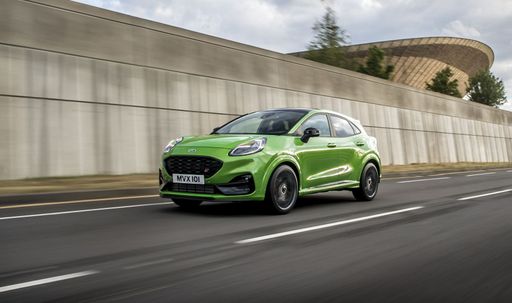
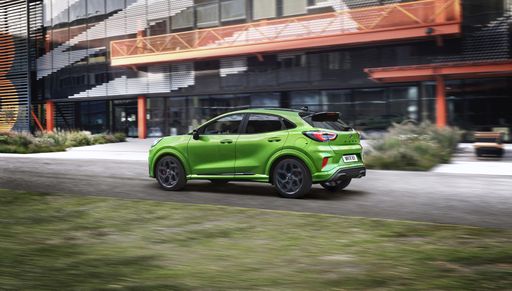
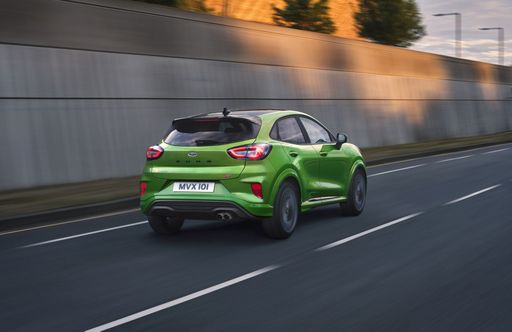
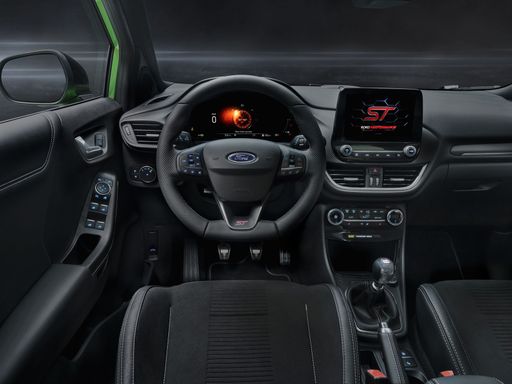
Skoda Octavia Combi
The Skoda Octavia Combi is the sensible family wagon that somehow turns grocery runs and long trips into a pleasant, unshowy experience — spacious, practical and built like it prefers reliability over flash. With smart touches, clever storage and a cabin that feels grown-up rather than frugal, it’s an easy recommendation for buyers who want maximum utility without sacrificing comfort or style.
details
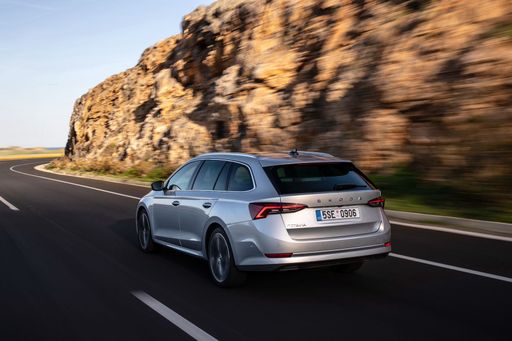
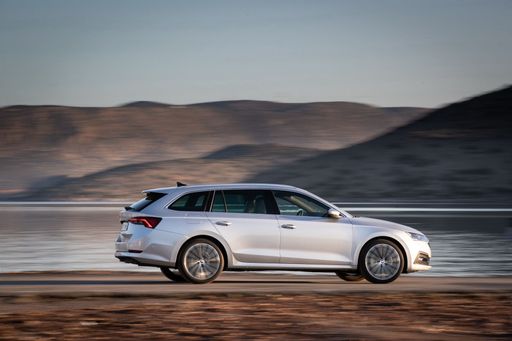
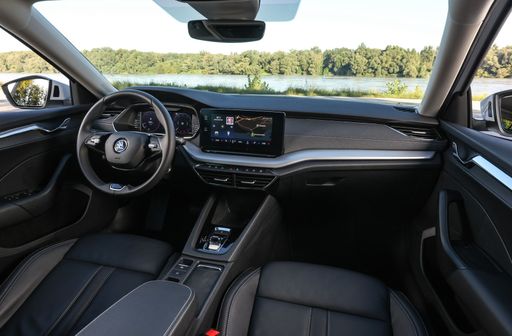

|

|
|
|
|
Costs and Consumption |
|
|---|---|
|
Price
24800 - 36300 £
|
Price
24400 - 42300 £
|
|
Consumption L/100km
5.4 - 5.9 L
|
Consumption L/100km
4.4 - 6.9 L
|
|
Consumption kWh/100km
13.1 - 13.9 kWh
|
Consumption kWh/100km
-
|
|
Electric Range
361 - 376 km
|
Electric Range
-
|
|
Battery Capacity
43 kWh
|
Battery Capacity
-
|
|
co2
0 - 135 g/km
|
co2
113 - 157 g/km
|
|
Fuel tank capacity
42 L
|
Fuel tank capacity
45 - 55 L
|
Dimensions and Body |
|
|---|---|
|
Body Type
SUV
|
Body Type
Estate
|
|
Seats
5
|
Seats
5
|
|
Doors
5
|
Doors
5
|
|
Curb weight
1316 - 1563 kg
|
Curb weight
1366 - 1553 kg
|
|
Trunk capacity
456 - 523 L
|
Trunk capacity
640 L
|
|
Length
4186 - 4226 mm
|
Length
4698 - 4709 mm
|
|
Width
1805 mm
|
Width
1829 mm
|
|
Height
1550 - 1555 mm
|
Height
1455 - 1468 mm
|
|
Max trunk capacity
1216 - 1283 L
|
Max trunk capacity
1700 L
|
|
Payload
367 - 469 kg
|
Payload
471 - 534 kg
|
Engine and Performance |
|
|---|---|
|
Engine Type
Electric, Petrol MHEV
|
Engine Type
Petrol, Petrol MHEV, Diesel
|
|
Transmission
Automatic, Manuel
|
Transmission
Automatic, Manuel
|
|
Transmission Detail
Reduction Gearbox, Manual Gearbox, Dual-Clutch Automatic
|
Transmission Detail
Dual-Clutch Automatic, Manual Gearbox
|
|
Drive Type
Front-Wheel Drive
|
Drive Type
Front-Wheel Drive, All-Wheel Drive
|
|
Power HP
125 - 168 HP
|
Power HP
116 - 265 HP
|
|
Acceleration 0-100km/h
7.4 - 9.8 s
|
Acceleration 0-100km/h
6.5 - 10.7 s
|
|
Max Speed
160 - 210 km/h
|
Max Speed
203 - 250 km/h
|
|
Torque
170 - 290 Nm
|
Torque
220 - 370 Nm
|
|
Number of Cylinders
3
|
Number of Cylinders
4
|
|
Power kW
92 - 124 kW
|
Power kW
85 - 195 kW
|
|
Engine capacity
999 cm3
|
Engine capacity
1498 - 1984 cm3
|
General |
|
|---|---|
|
Model Year
2025
|
Model Year
2024 - 2025
|
|
CO2 Efficiency Class
A, D
|
CO2 Efficiency Class
E, F, D, C
|
|
Brand
Ford
|
Brand
Skoda
|
Is the Ford Puma offered with different drivetrains?
The Ford Puma is offered with Front-Wheel Drive.
The prices and data displayed are estimates based on German list prices and may vary by country. This information is not legally binding.
